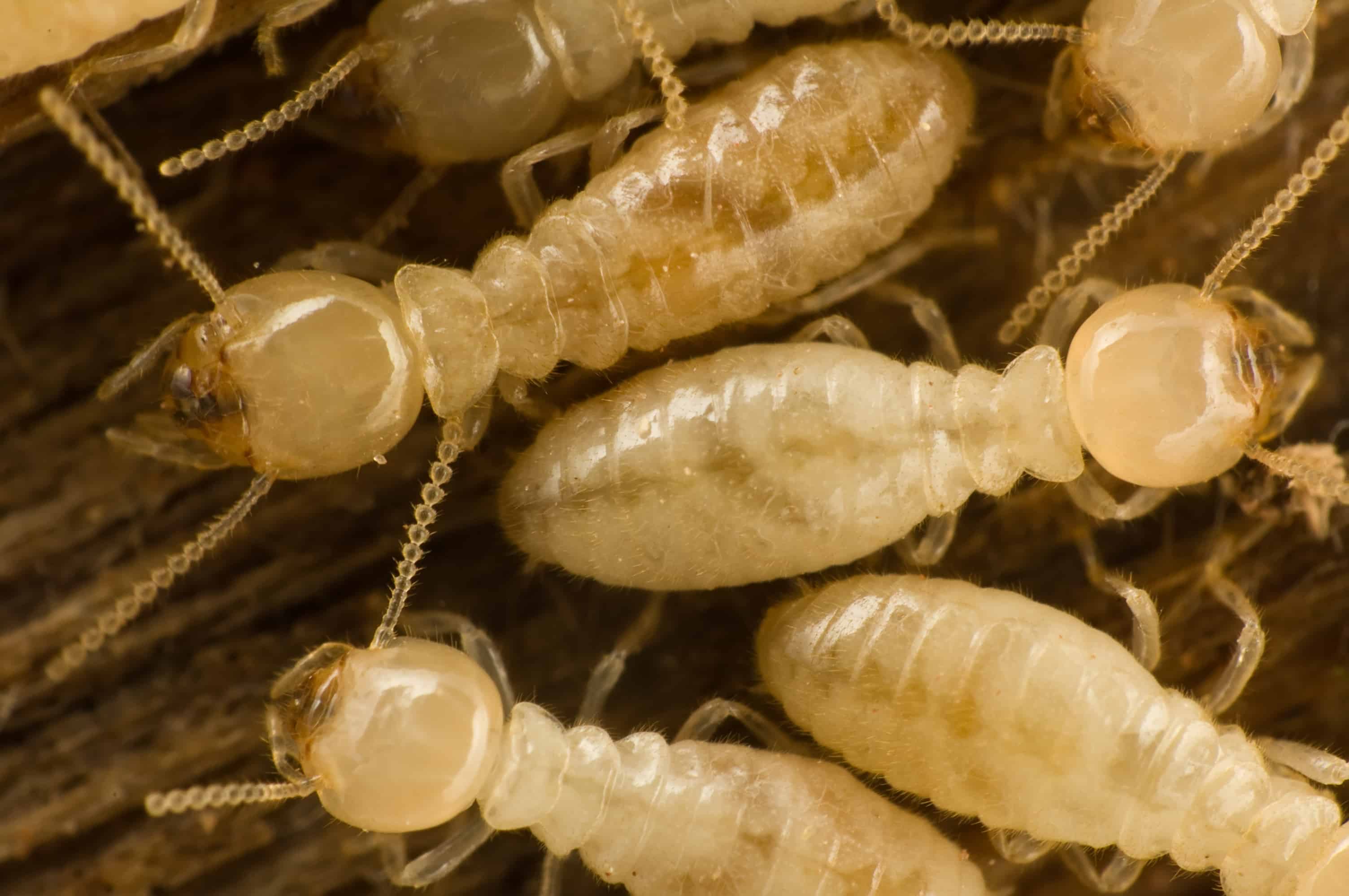Subterranean termites have an important job. That job is to consume dead wood and cellulose material.
First of all, termites consume these natural materials in order to break it down into organic material. These materials are to be recycled to help plants grow again. Can you imagine what it would be like if there weren’t organisms like termites, decay fungus and others organisms that recycle wood? We would be up to our necks in dead tree logs and limbs!
Subterranean termites are able to consume and process wood (cellulose material) with the help of microbes and enzymes in their gut. These microbes break down the hard to digest cellulose into starches and sugars the termites can digest. What are most of our home constructed of!? Wood! The termite colony cannot make a distinction between your home and a log in the forest so they will eagerly feed on your home.
Subterranean Termite Colonies
Subterranean termites live in colonies made basically up of queens, reproductive termites, soldiers, and workers. They all live together happily in their termite nests. The workers do all the manual labor of the colony from eating wood to creating mud shelter tubes (tunnels) and feeding the queens and soldiers.
The workers are the colony members that eat and cause damage to wood. Colonies can range from thousands of members into the millions depending on the species of termites. Subterranean termites generally liver under the ground and will build mud tubes over materials to get to the wood.
Eastern Subterranean Termites
The eastern subterranean termite is the most common termite throughout the United States. Another Subterranean termite species called the Formosan termite has the reputation for having the largest colonies and very aggressive damaging effects on wood structures. Formosan termites are generally found around the gulf coast from Louisiana to Florida.
As a result, there may be a number of termite colonies in different sizes around the foundation of a home so there may be multiple attacks to different areas. One of their main food sources is your home.
Subterranean termites will not eat up your home in a short time period. Furthermore, it does take time depending on the size of the colony attacking and the species of termite. Due to this type of termite’s habits of invading hollow walls and damaged hidden 2×4 wood studs, many cases homeowners do not know the home is being attacked. More damage can occur the longer the termite infestation is undetected.
Some Interesting Information About Subterranean Termite Colonies And Wood:
- Consumers pay billions of dollars each year for termite pest control and damage
- Even a smaller termite colony can eat up to 1 foot of a 2×4 piece of wood in 5-6 months
- Termites damage over a half a million homes each year
- Worker termites eat wood 24 hours a day
How Much Wood Can A Single Termite Feed On?
Another question you may have is: How much wood can a termite feed? That can be a hard question to answer. A single termite worker can’t cause too much damage alone but remember termites live in colonies with thousands of workers. Furthermore, they also may not feed on only one board but may move on to other wood members. Consequently, there may be a number of colonies attacking the structure in different locations, so damage could be widespread in hidden areas.
Also, what are the basics of subterranean termite damage and wood consumption? A smaller termite colony of eastern subterranean termites (60,000) could consume up to a foot length of a 2×4 wood stud in approximately 5 months. Most noteworthy, larger colonies could consume wood at a faster rate. The Formosan termite can have a colony that numbers in the millions and can consume up to a foot of wood in a few days.
Subterranean Termite Summary
Finally, remember the time it takes for subterranean termite wood damage depends on all the factors listed above: Species of termites, size of colonies, number of colony attacks and time.
Above all, it is always suggested to have your home inspected by a professional pest control company. Termite control is a necessity in Tennessee.
CONNECT WITH US!
Connect with us on YouTube and follow us on social media! Facebook | Twitter | Instagram | LinkedIn or Contact Us today!

